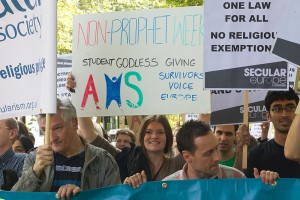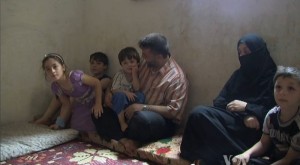In the last few weeks and months, I have sometimes found hope in rather short supply. That’s not particularly due to personal events so much as events in the world at large, particularly those that can be summarised in two evocative words, ‘Brexit’ and ‘Trump’. These are a source of despair primarily because of the bad news they convey about the lack of critical thinking and wider awareness in a large section of the population of the UK and US, together with the apparently disastrous implications of Trump’s election for the already fragile international consensus to act effectively on climate change. Absolutisation appears to rule unchallenged so often in so many minds at crucial times, who are thus paralysed from responding to important conditions by an obsession with straw man targets such as ‘political correctness’, ‘liberal elites’, or the influence of foreign migrants, and apparently animated by an overwhelming nostalgia for past social certainties.
The effects of these obsessions are underlined by George Monbiot in an article called ‘The 13 impossible crises that humanity now faces’, which include not only Trump and climate change, but the possibility of a new financial crisis, the likely collapse of the EU, mass migration, mass unemployment due to automation, a looming food crisis, mass extinctions, (and, added in a comment) antibiotic resistance and the global pensions crisis. To address these kind of conditions, we need every sinew of balanced critical awareness we can gather, yet at the very moment we seem likely to need it most, it seems that the majority of the population is determined to stick its collective head in the sand.
Where is hope at a time like this? Strangely enough, hope always seems to be our default setting, regardless of such bad news. Iain McGilchrist points out that our dominant left hemispheres are subject to a general shallow optimism, ensuring that human beings will always tend to seek a new positive response to their conditions. The shock of bad news is short-lived, and it generally takes us little time before we start seeking alternative positive sides to it. As the Monty Python team memorably sings from their crosses, it’s always possible to ‘look on the bright side of life’.
But is there any justification for this default resurgence of hope? Is it just another aspect of the confirmation bias that makes us so prone to error in the first place? I would argue that there is. There is a shallow source of hope in this default setting, but there is also a deeper source of hope in the wider insights we find whenever we start to move beyond our delusions of the moment. Our embodied nature not only makes us continue to hope, but also helps us respond to frustration by reframing our perspective and gaining a better understanding. Darkness may be followed by a new dawn because, when we are at our most deluded, we are very likely to clash with conditions and be forced towards a more adequate perspective. We will not escape suffering, but we may learn from our suffering. The Middle Way is a way of talking about that capacity for finding new, more adequate perspectives in the face of uncertainty.
Both optimism and pessimism, when adopted as all-encompassing interpretations of the situation, are deluded, and a more adequate position is likely to lie somewhere between them. George Monbiot alerts us to some pressing conditions, but his piece needs to be recognised as a selective interpretation of events. We also have much to be cheerful about. On a personal level, many of us still have enough to eat, comfortable houses, stimulating lives and supportive companions. Worldwide, violence continues to decline (as documented by Steven Pinker); moral attitudes in many countries have transformed so as to respect many groups that were previously oppressed on grounds of race, age, gender, sexuality; human lifespan continues to extend; extreme poverty continues to decline; numbers of people attending school and university worldwide continue to rise. If you raise these points, you may be accused of complacency, just as raising Monbiot’s points may lead to denial or your dismissal as a doom merchant. Nevertheless, questioning both the absolutes of optimism and pessimism remains a crucial aspect of the practice of the Middle Way.
People may associate hope with optimism, but if that optimism is dogmatic or built on little more than our ‘default setting’ it is fragile. A more sustainable hope comes from the Middle Way, because the Middle Way ensures that we are always working towards realism as well as optimism. The best hope is a grounded hope. Rather than being overwhelmed by the perspective of the present, reflection can also help us to take the long view. In the long view, even the impact of Adolf Hitler has eventually faded and been put into perspective, like that of Genghis Khan or the Emperor Nero before him. There is no guarantee that suffering or loss will clear the way for new advances, but mere reflection on the fact that they often do may help us to put things into perspective.
‘There is always hope’ thus seems like a helpful and justified generalisation of human experience. A string of proverbs and truisms (‘Hope springs eternal’ and so on) confirm that it has widely been seen to be so. Our times may be disastrous, but they are still not times for despair.
Picture: Allegory of Hope by Wojniakowski


